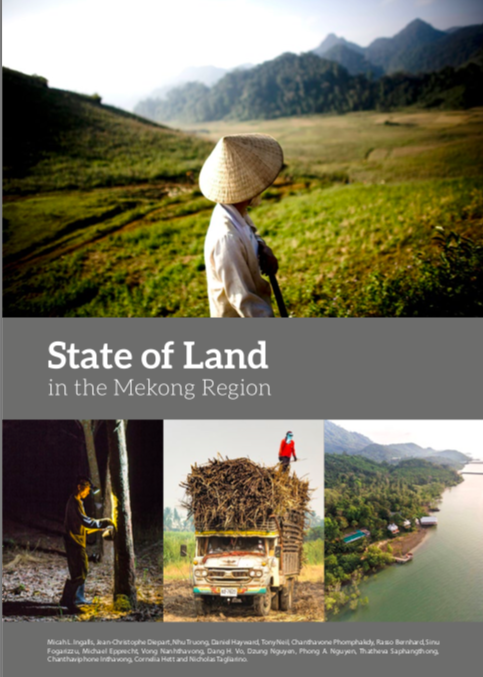The rapid expansion of hybrid maize in the uplands of northern Laos is viewed by the government as meeting policy aims related to green economic development. Yet, growing evidence of negative consequences of maize expansion are emerging. Based on farmers’ perceptions, we study: (1) farmers’…
FAO’s current cooperation with the Lao People’s Democratic Republic focuses on fostering agriculturalproduction and rural development, improving food security and nutrition, protecting and enhancingforests and other ecosystems and improving the capacity to respond to food and agricultural…
The residents of the Ganges and Mekong River deltas face serious challenges from rising sea levels, saltwater intrusion, pollution from upstream sources, growing populations, and infrastructure that no longer works as planned. In both deltas, scientists working for nearly two decades with…
The government of (post)socialist Laos has conceded more than 1 million hectares of land—5 percent of the national territory—to resource investors, threatening rural community access to customary lands and forests. However, investors have not been able to use all of the land granted to them, and…
Land cover data is widely used for the design and monitoring of land use policies despite the incapability of this type of data to represent multiple land uses and land management activities within the same landscape. In this study, we operationalized the concept of land systems for the case of…
Increasing global demand for natural rubber began in the mid-2000s and led to large-scale expansion of plantations in Laos until rubber latex prices declined greatly beginning in 2011. The expansion of rubber did not, however, occur uniformly across the country. While the north and central Laos…
As Chinese investment in foreign land and agriculture expands dramatically worldwide, a growing body of research has emerged on the prevalence of land deals in Latin America and Africa. Southeast Asia, however, has only recently begun to receive significant attention in these discussions. A…
WEBSITE INTRODUCTION: This report presents a synthesis of the main findings from case studies carried out in six countries in Africa (Ghana, Sierra Leone, United Republic of Tanzania and Zambia) and Asia (Laos and Philippines). The findings were disseminated and discussed in multistakeholder…
Agricultural large-scale land acquisition (LSLA) is a process that is currently not captured by land change models. We present a novel land change modeling approach that includes processes governing LSLAs and simulates their interactions with other land systems. LSLAs differ from other land…
ABSTRACTED FROM EXECUTIVE SUMMARY: More than ten years after its original formulation, the Lao government is now questioning the effectiveness of the “Turning Land into Capital” (kan han thi din pen theun) policy in generating economic value from the commercialization of land, facilitating local…
The Mekong region has undergone rapid socio-economic growth over the past two decades alongside pronounced transformations in a number of key sectors and relations between the rural majority and increasingly-affluent urban centres. Land—as both a foundation for national development and the…






